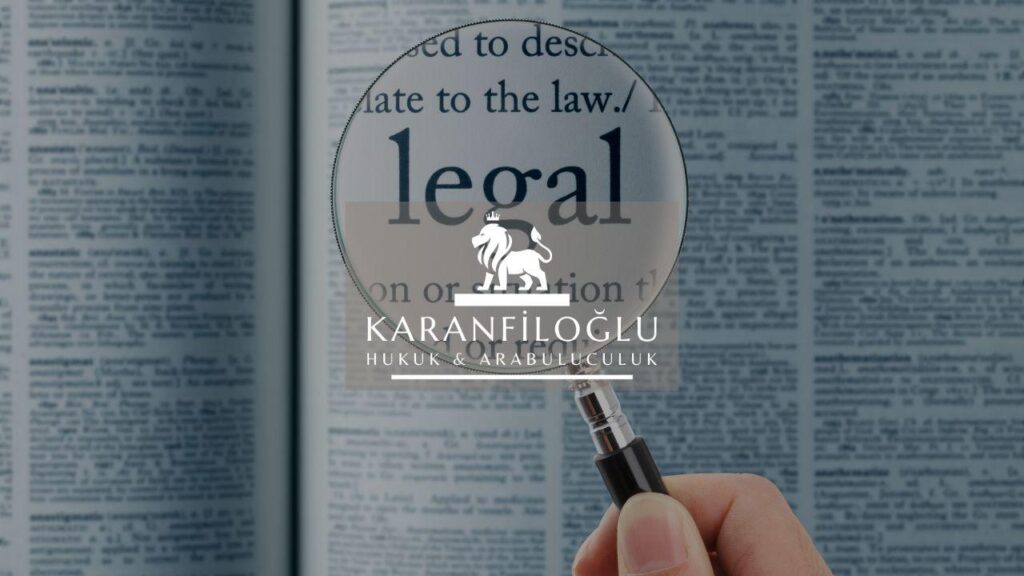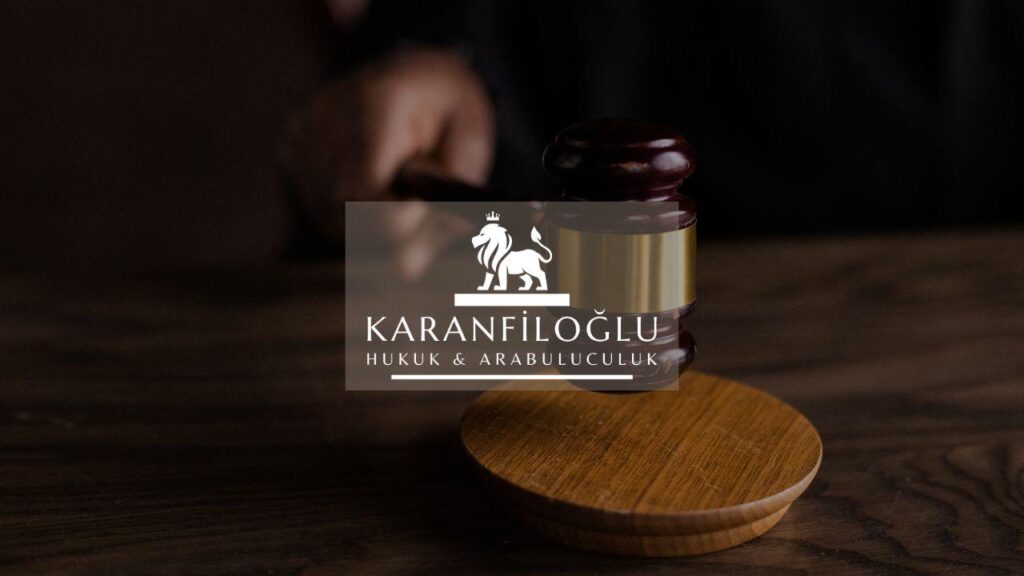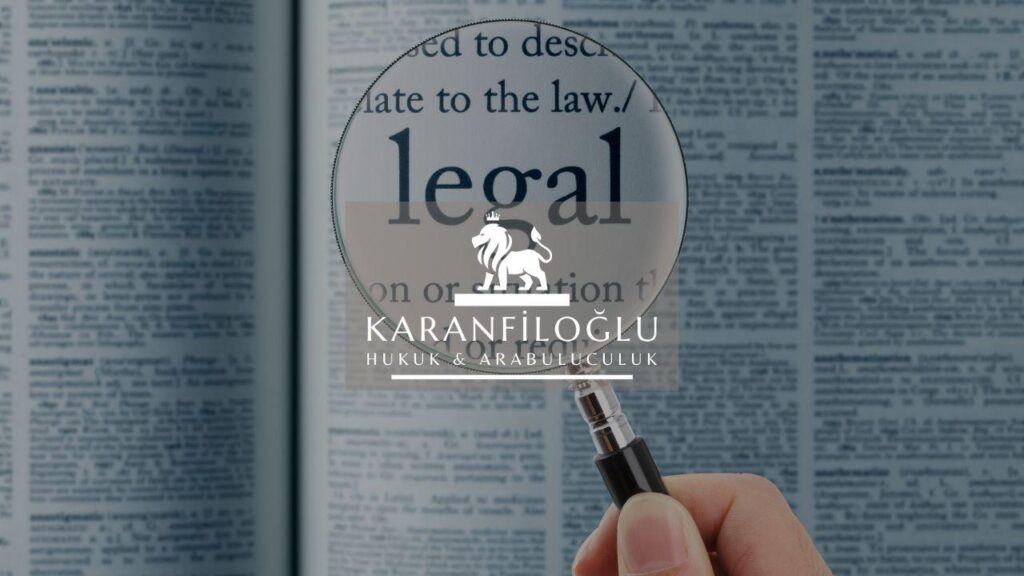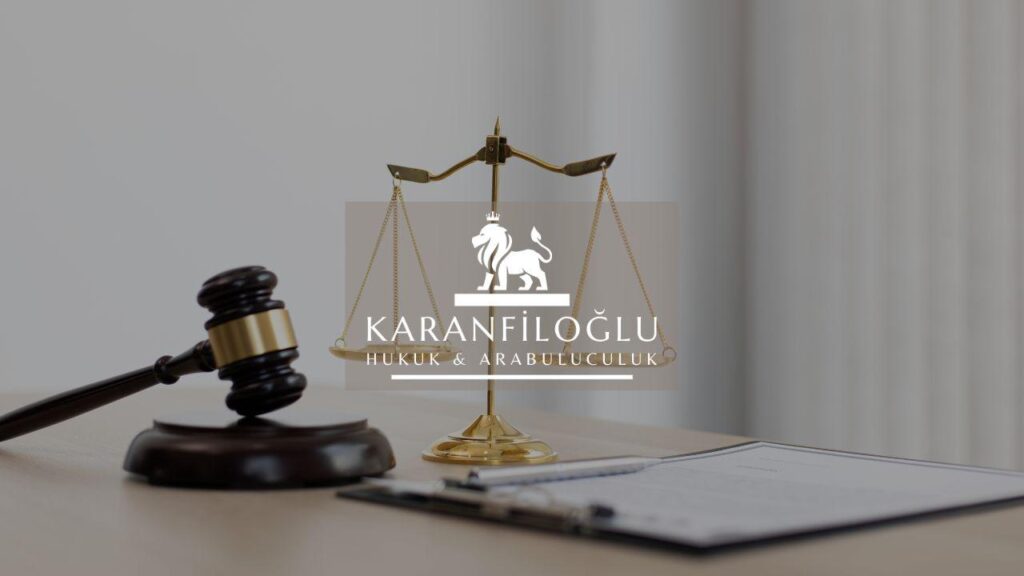In the complex landscape of civil disputes in Turkey, mediation has emerged as an essential tool for resolving conflicts outside the traditional courtroom setting. Governed by the Mediation in Civil Disputes Law No. 6325, mediation serves as an appealing alternative for parties seeking a faster, cost-effective, and less adversarial resolution to their disagreements. Specifically, Article 3 outlines the principles of voluntariness and confidentiality, which are fundamental to the mediation process, preserving the parties’ privacy and fostering open dialogue. Meanwhile, Article 18 regulates the enforceability of agreements reached through mediation, granting them similar status to court judgments. Mediation is particularly advantageous in disputes that require specialized knowledge, flexibility, and the preservation of business relationships. Engaging in this method under the guidance of experienced legal professionals, such as those at Karanfiloglu Law Office, not only expedites dispute resolution but also enables tailored solutions that align with the interests of all parties involved.
The Role of Mediation in Resolving Civil Disputes in Turkey
In Turkey, the role of mediation in resolving civil disputes has become increasingly pronounced, thanks to legal frameworks that encourage its adoption as a pre-litigation step. As defined under Article 4 of the Mediation in Civil Disputes Law No. 6325, parties may voluntarily refer their disputes to mediation at any stage of a legal process, even after a court case has commenced. This preemptive engagement in mediation can curtail lengthy legal proceedings and help preserve relationships by fostering cooperative resolution strategies. Moreover, mediation allows the parties to devise creative solutions that may not be possible within the constraints of a courtroom decision. The Karanfiloglu Law Office leverages its expertise in facilitating such negotiations, ensuring that clients not only save time and resources but also achieve agreeable outcomes in a controlled, confidential setting. This flexibility is critical in a variety of contexts, from commercial disagreements to family law disputes, where ongoing relationships are often at stake.
Mediation also serves as an effective mechanism in complex civil disputes that require nuanced understanding and specialized knowledge. Article 5 of the Mediation in Civil Disputes Law No. 6325 emphasizes the importance of appointing a mediator who is not only impartial but also possesses the requisite expertise pertinent to the nature of the dispute. This ensures that the mediator can appreciate the intricacies involved and guide the parties towards a well-informed resolution. Whether dealing with intricate commercial contracts or disputes involving intellectual property, the specialized mediators and legal advisors at Karanfiloglu Law Office are equipped to navigate these complexities with precision. Furthermore, the structured process outlined in Articles 11 and 12, which governs the conduct of mediation sessions, ensures that all parties are heard and that the settlement reached is fair and equitable. Through this method, mediation not only resolves existing issues but also lays the groundwork for preventing future conflicts by establishing clear, mutually beneficial arrangements.
Given these numerous advantages, strategically choosing mediation over litigation can be particularly beneficial in disputes where discretion and speed are paramount. The flexibility of mediation provides an opportunity for the parties involved to focus on the core issues without the pressure of legal formalities inherent in traditional court settings. In accordance with Article 9 of the Mediation in Civil Disputes Law No. 6325, parties are empowered to reach a creative and practical solution that a court may not be able to offer, ultimately leading to a more satisfactory and sustainable outcome. The Karanfiloglu Law Office prides itself on guiding clients through this collaborative process, advocating for their interests while maintaining the integrity and confidentiality of the mediation proceedings. By prioritizing a tailored approach to each dispute, clients can avoid the financial burdens and emotional stress of prolonged litigation, thereby fostering a more harmonious resolution and paving the way for effective conflict management in the future.
Comparative Analysis: Mediation vs. Litigation Costs and Outcomes
In Turkey, the financial implications and outcomes of mediation versus litigation in civil disputes present distinct contrasts. Mediation, as governed by the Mediation in Civil Disputes Law No. 6325, offers a cost-efficient alternative, typically resulting in lower expenses due to the abbreviated time frame and reduced procedural requirements compared to litigation, which involves prolonged court proceedings and associated fees. Article 13 of Law No. 6325 ensures that each party bears their own mediation costs unless otherwise agreed, further facilitating a collaborative financial approach. Conversely, litigation often incurs additional costs such as court fees, attorney fees, and potential appeal expenses, escalating the financial burden on the parties involved. Moreover, mediation frequently leads to mutually agreeable outcomes crafted by the parties themselves, fostering cooperation and satisfaction. In contrast, litigation culminates in a court-imposed judgment, which may not meet the specific interests of either party, potentially exacerbating the conflict and prolonging its resolution.
When evaluating the outcomes of mediation versus litigation, it is crucial to consider the impact on long-term relationships and emotional strain. Mediation, emphasizing collaborative resolution, often preserves the relationships between parties by facilitating communication and understanding, which is particularly beneficial in disputes involving business partners or family members. Article 3’s principles of voluntariness and confidentiality enhance this process, as parties can negotiate freely without fear of disclosure, reducing potential stress associated with public court proceedings. In contrast, the adversarial nature of litigation can strain relationships, with the publicity of court actions potentially leading to lasting reputational harm and privacy concerns. Furthermore, court-imposed judgments may result in win-lose scenarios, leaving one party dissatisfied and likely to pursue further legal recourse. Engaging in mediation at the outset can help parties avoid such detrimental consequences, securing a more satisfactory and harmonious conclusion beneficial to all involved.
In terms of efficiency and flexibility, mediation offers distinct advantages over traditional litigation. The expedited nature of mediation proceedings enables parties to resolve their disputes more swiftly, often concluding within a matter of weeks or months, as opposed to the prolonged timelines associated with conventional court cases, which can extend over years. This swift resolution not only alleviates stress but also allows parties to redirect their focus and resources toward their personal and business interests. Additionally, the flexibility inherent in the mediation process allows parties to craft creative solutions tailored to their specific needs, as opposed to the rigid legal frameworks that govern court judgments. Article 14 of Law No. 6325 ensures that mediation sessions can be conducted in a manner that accommodates the parties’ schedules and preferences, further enhancing its practicality. The adaptability of mediation also supports a more nuanced and comprehensive exploration of the issues at hand, enabling parties to address underlying interests and concerns, ultimately leading to sustainable and amicable resolutions.
Key Considerations Before Opting for Mediation in Civil Cases
Before opting for mediation in civil cases, it is crucial to consider several key factors to determine its suitability for your specific dispute. Firstly, the nature of the conflict plays a vital role; mediation under Law No. 6325 is often most effective in cases involving commercial disputes, contractual issues, or matters where maintaining a relationship is beneficial. Secondly, it is important to assess whether both parties are willing to participate voluntarily, as mediation relies heavily on the cooperative spirit outlined in Article 3 of the Mediation Law. The voluntary aspect is underscored as essential for the process’s success. Additionally, understanding the legal enforceability of a potential settlement is critical. Under this framework, agreements reached through mediation and duly signed by the parties can be enforced similarly to court orders, as stipulated in Article 18, providing assurance of the settlement’s durability and reliability. Consulting with legal experts, like those at Karanfiloglu Law Office, ensures that these considerations are thoroughly understood and addressed.
Another pivotal consideration is the confidentiality of the mediation process itself. Confidentiality is a cornerstone of mediation, as highlighted in Article 3 of Law No. 6325, protecting the privacy of both parties and the information shared during discussions. This aspect encourages candid dialogue and can be particularly beneficial in disputes involving sensitive information, where public exposure could be detrimental to either party. Moreover, the flexibility of mediation allows parties to negotiate more creative and customized solutions, as it is not bound by the formalities of court proceedings. This flexibility can be actioned with the guidance of skilled mediators and legal advisors, ensuring that the outcome is more closely aligned with the parties’ needs and interests. The ability to reach a mutually agreeable resolution without the constraints of rigid legal procedures often results in outcomes that parties are more satisfied with, thereby enhancing the likelihood of compliance with the settlement terms.
Timing is another crucial consideration when deliberating the decision to enter mediation. Engaging in mediation at an early stage of the dispute can avert unnecessary escalation and the associated costs of protracted litigation. However, it is equally vital to assess the stage of the dispute as there are circumstances where conducting preliminary negotiations or information exchanges might set a more productive foundation for mediation. Moreover, awareness of any time limits or deadlines stipulated by Turkish law, including the statutes of limitations relevant to the dispute, should be gauged to avoid any adverse impacts on legal rights. At Karanfiloglu Law Office, our experienced attorneys can help discern the optimal timing for mediation, ensuring that strategic advantages are maximized, and interests are safeguarded within the framework of Turkish civil law. Engaging professional advice enables parties to make informed choices about proceeding with mediation and to navigate the complexities efficiently towards a satisfactory resolution.
Disclaimer: This article is for general informational purposes only and you are strongly advised to consult a legal professional to evaluate your personal situation. No liability is accepted that may arise from the use of the information in this article.







